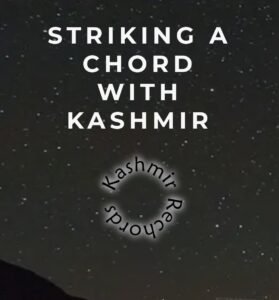(Kashmir Rechords Exclusive)
In the ever-complex political landscape of Jammu and Kashmir, one constituency that has consistently drawn attention is the Habba Kadal seat in the Srinagar district. Historically, it has held a unique position due to its significant Kashmiri Pandit population, which, even before their mass migration in 1990, was viewed as a key demographic capable of tipping the scales in election outcomes. Even in infamous 1987 election and after their exodus, this constituency remains of great symbolic importance, attracting interest from both local and international communities. The upcoming election on Wednesday, September 25, 2024, is no different, as eyes from around the globe remain fixated on Habba Kadal.
The pattern of attention in Kashmir, particularly during any poll time, is not new; it has recurred during every election cycle, in any segment. The 1987 Jammu and Kashmir State Assembly election, for instance, offers a stark reminder of the significance of Habba Kadal constituency. At that time, the atmosphere in the Kashmir Valley was tense, with political friction brewing, especially in sensitive areas. According to archival reports, reproduced by Kashmir Rechords here, the day of polling, March 23, 1987, was marred by arson, clashes, and incidents of stabbing in many constituencies, including Habba Kadal—a level of unrest that had never been witnessed before in the area.
The 1987 election was particularly contentious, with the National Conference (NC) under Farooq Abdullah and Congress forming an alliance, bolstered by the support of the Awami Action Committee. Their primary opposition came from the Muslim United Front (MUF), a coalition of religious and separatist elements that challenged the political status quo. In Habba Kadal, the NC-Congress alliance fielded P. L. Handoo, a Kashmiri Pandit who had been shifted from Pahalgam, hoping to secure the Pandit vote that formed nearly a third of the constituency’s 60,000-strong electorate.
In 1987, the Kashmiri Pandit community was divided. While Handoo represented the NC-Congress alliance, another prominent Pandit, Tika Lal Taploo, contested the election as the Bharatiya Janata Party (BJP) candidate. The fractured Pandit vote became a point of intense debate within the community. H. N. Jattu, leader of the All India Kashmiri Pandit Conference (AIKPC), made an impassioned appeal to his fellow Pandits to rally behind the NC-Congress alliance. Yet, many within the community remained torn between supporting Handoo or backing Taploo, leading to deep divisions on election day.
Handoo also faced strong opposition from Mushtaq Ahmad of the MUF, and while there were three more candidates in the fray, they were considered minor players. The combination of candidates from diverse ideological backgrounds ensured that Habba Kadal would become a flashpoint in the 1987 election, symbolizing the broader political and communal tensions of the time.
That same year, a similar high-stakes contest unfolded in Haba Kadal’s neighbouring Amira Kadal constituency. Here, the NC’s former Minister G. M. Shah was pitted against MUF’s Mohammad Yusuf Shah, the latter being a significant figure in separatist circles. By 1987, Mohammad Yusuf Shah had already gained prominence as the “Amir-e-Jamat” of Srinagar district, a title reflecting his influence within the Jamaat-e-Islami party.
His campaign was marked by fervent public engagement, as he moved from house to house, waving green flags emblazoned with images of the Holy Quran, calling on voters to support his cause.
Amira Kadal’s 52,000 voters represented a microcosm of the larger political dynamics playing out in Kashmir. It was a diverse constituency, with significant numbers of women, Shia Muslims, Hindus (including Punjabi State Subjects), and Sikhs. This variety of demographics made it difficult to predict the electoral outcome, as each group had to weigh their support between candidates espousing separatist ideologies or the more conventional political establishment represented by the NC-Congress alliance.
Despite the high drama and tension, P. L. Handoo ultimately won the Habba Kadal seat, while G. M. Shah secured victory in Amira Kadal, defeating Mohammad Yusuf Shah. However, these victories were overshadowed by widespread allegations of rigging, which would have long-lasting consequences for the region. The 1987 election is often cited as a catalyst for the insurgency that erupted in the Valley soon after, and Mohammad Yusuf Shah, the defeated MUF candidate, would later cross the border into Pakistan and become Syed Salahuddin, the notorious leader of the Hizbul Mujahideen militant group.
Fast forward to 2024, Habba Kadal once again finds itself at the centre of political intrigue. The upcoming election, while lacking the violent overtones of 1987, is nonetheless fraught with tension. The Kashmiri Pandit community, many of whom have resettled in other parts of India and abroad, continues to watch the constituency closely. Their political relevance may have diminished over the decades, but the symbolic value of Habba Kadal remains strong, representing a lingering connection to their homeland and a reminder of the turbulent history that has shaped both the constituency and the broader Kashmir Valley.
As polling day approaches, with some groups calling for a boycott or urging voters to press NOTA, the question remains: what will be the voting pattern and final outcome in the Habba Kadal constituency? What political dynamics will shape the electorate’s decision? And regardless of the result, will Habba Kadal continue to be known as the “Constituency of Kashmiri Pandits,” given its history of producing prominent Pandit leaders across the political spectrum?
=======
